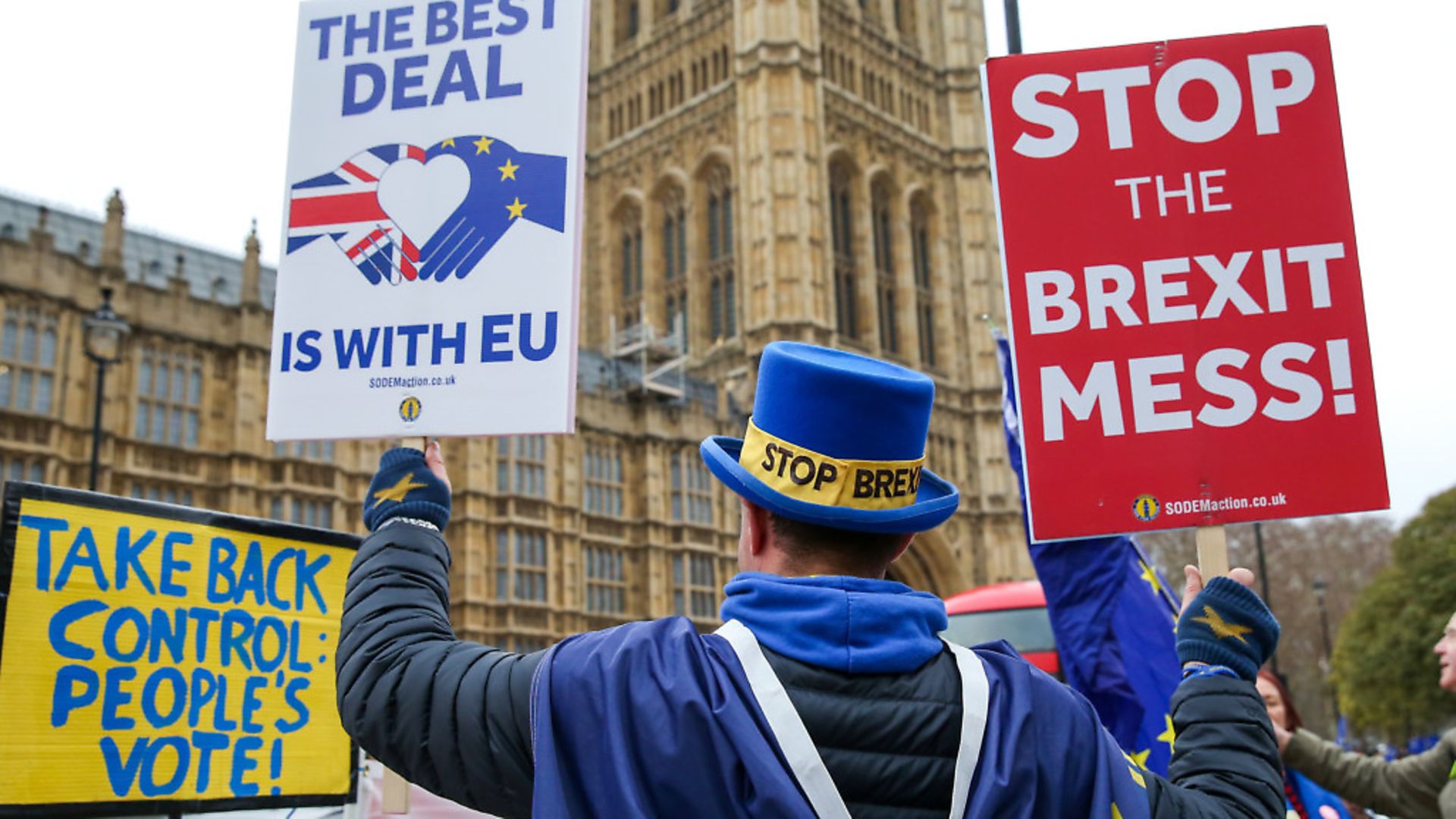
March 29 is a full stop, writes JAMES BALL, and it is hard to see a way back for Remain afterwards.
March 29. It’s the date we’ve heard more than any other – a new contender for Groundhog Day – and the latest Brexit-related issue that Theresa May is digging in on.
She is insisting that despite almost everyone believing that even if her deal were to get through parliament, there is not enough time to pass all the legislation to avoid a chaotic Brexit by the end of next month, the UK will leave the EU on that date.
This might, in fact, be possible – there are a few potential fudges that could effectively form an extension in everything but name, while meaning that the UK had technically left the EU. This would then be followed by a transition period in which, once again, in practice, nothing will have changed.
You could be forgiven, then, for thinking that March 29 is not all that important – that the real action is still a few years off, when we negotiate the future relationship, or risk entering the backstop.
You would be wrong. For Remainers especially, these next few weeks are the last chance saloon – stopping Brexit after that point is more difficult, by several orders of magnitude.
The core of the issue is that for all we keep hearing that the UK cannot have a special deal as it leaves the EU, the truth is that has actually been given an extraordinarily special deal while it has been a member state, as the graphic on these pages shows.
The UK gets a rebate, meaning it pays less towards the cost of the EU than a country of its size and wealth would otherwise do. It has certain opt-outs on policing and security, strong veto rights over most rules, opt-outs over certain employment rules, and is not required to move towards joining either the euro, or even the Schengen passport-free travel area.
These are not benefits offered to even all the other existing members of the EU, let alone any new state which would wish to join.
The significance of this comes when you look at the different processes to stop Brexit before and after March 29. As King’s College lecturer Alexander Clarkson noted on Twitter, any state seeking to join the EU as a new member does so through a process set out in Article 49 of the Lisbon Treaty.
By default, new states are required to sign up to the treaties as they stand – without any opt-outs. This would mean that stopping Brexit after March 29 would involve joining the EU as a new member state, and so signing up to Schengen, aligning with the eurozone and losing the rebate would be the default position.
It is possible, though deeply unlikely, that the EU could shift on one or two of these priorities – but it is completely against the Union’s interests to make any meaningful concessions for a new joiner, as then each and every new state would ask for the same. This would then mean that each new member gets a better deal than the existing ones. Clearly this would not be a sustainable position.
That would leave any ‘Stop Brexit’ campaign with a very tough sell: not only would it have to convince a country which voted to Leave – albeit very narrowly – its existing, very good, deal with the EU, it would have to convince it to sign up to a new one, which was less generous and contained even more measures that many in the UK dislike.
The only way to avoid having to go through this process is to stop Brexit while the Article 50 process is still active – before March 29, or any extension of it.
Thanks to the Court of Justice of the EU ruling, we now know unambiguously that if the UK revokes Article 50 – this revocation has to be sincere and unconditional – its relationship as an EU member state returns to exactly the same terms as it was when Article 50 was triggered. Essentially, revocation works as a complete do-over – on paper, at least, it would be like the last two years never happened.
Any Leavers noticing the plight of the Stop Brexit cause – the need for urgency which is missed by many – should not get complacent, though.
They have many of the same issues with their agenda, if they don’t get things in place by the Article 50 date. The key example for that – and one which, to their shame, many no-deal advocates seem not to realise – is that there is absolutely no mechanism to create a transition once Article 50 has transpired.
Most political deadlines are phony. Most stalled talks, or gridlocked politics, just lead to stagnation until a political wave comes along to sweep everything away and reset the board. Article 50 is not your typical political deadline: it is very, very real.
This is why we need a sense of urgency – even one of panic. If we are being honest with ourselves, we are not currently winning the battle. The prospects of a second referendum, or of stopping Brexit, seem to be fading.
So it is tempting to think we could wait, perhaps let the ground shift, and work in a year, maybe two years, and reverse the damage then.
It feels more doable, it feels tempting. It is a false temptation, and a false hope. We need to win this battle now, or we will not win it. Time is running out.
Warning: Illegal string offset 'link_id' in /mnt/storage/stage/www/wp-includes/bookmark.php on line 357
Notice: Trying to get property 'link_id' of non-object in /mnt/storage/stage/www/wp-includes/bookmark.php on line 37







